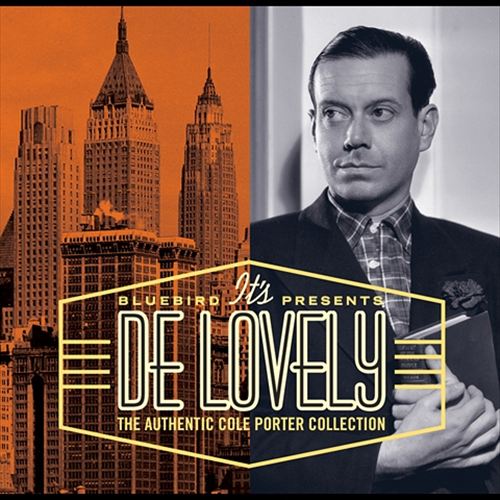Logowanie
Dziś nikt już tak genialnie nie jazzuje!
Bobby Hutcherson, Joe Sample
San Francisco
SHM-CD/SACD - NOWY FORMAT - DŻWIĘK TAK CZYSTY, JAK Z CZASU WIELKIEGO WYBUCHU!
Wayne Shorter, Freddie Hubbard, Herbie Hancock, Ron Carter, Elvin Jones
Speak no evil
UHQCD - dotknij Oryginału - MQA (Master Quality Authenticated)
Chesky! Niezmiennie perfekcyjny
Winylowy niezbędnik
ClearAudio
Double Matrix Professional - Sonic
najbardziej inteligentna i skuteczna pralka do płyt winylowych wszelkiego typu - całkowicie automatyczna
PORTER, Artie Shaw, Frank Sinatra, Lena Horne, Paul Desmond, The Tommy Dorsey Orchestra
Bluebird Presents It's De Lovely
- Artie Shaw - clarinet
- Frank Sinatra - vocal
- Lena Horne - vocal
- Paul Desmond - saxophone
- The Tommy Dorsey Orchestra - orchestra
- PORTER
The Authentic Cole Porter Collection
AllMusic Review by John Bush [-] Whenever great American song in general, or a classic songwriter specifically, goes through another phase of popularity, record labels invariably cast around to assemble yet another round of songbook compilations with artists from their catalog interpreting the standards. In 2004, on the occasion of the Cole Porter biopic De-Lovely (starring Kevin Kline), Bluebird/BMG entered the sweepstakes with It's De Lovely: The Authentic Cole Porter Collection. This collection is authentic because Porter was signed to Bluebird's long-ago parent label RCA Victor, and the label proved home to many of the best versions of his songs. It's also authentic because it features two rare performances by Porter himself. Although he never recorded with orchestral accompaniment for commercial release, Porter did record eight demos in 1934 accompanied only by his clumsy piano, and 70 years later producer Barry Feldman and bandleader Vince Giordano paved over the original backing with a newly recorded backing track that relies on a mid-'30s arrangement. The result is successful; Porter's voice betrays a few similarities to Mickey Mouse's but is no more idiosyncratic than Broadway hero Cliff Edwards, his interpretation is naturally superb, and the new accompaniment is unobtrusive. The rest of the compilation is more problematic. While most songbook compilations focus either on vintage versions contemporary to the song or later interpretations, It's De Lovely attempts both but manages only a hodgepodge of artists and time periods. The compilation certainly doesn't shirk in its presentation of excellent, classic material, but it never coalesces as a representative picture of Porter's genius. Only a few performances easily evoke Porter's era: the classic versions of "Night and Day" and "Begin the Beguine" by Fred Astaire and Artie Shaw (respectively), a performance of "Easy to Love" by the beloved crooner Al Bowlly, and a mournful version of "What Is This Thing Called Love" led by Leo Reisman and featuring trumpeter Bubber Miley from Duke Ellington's Orchestra. Latter-day interpretations by Sonny Rollins (of "You Do Something to Me") and Paul Desmond (of "I've Got You Under My Skin") are lovely also but difficult to reconcile to the whole.


































